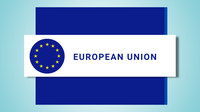DG ECHO, ERCC and EMSA
About EU Agencies
The Union Civil Protection Mechanism (UCPM) within the European Commission, Directorate General for European Civil Protection and Humanitarian Aid Operations (DG ECHO) aims to strengthen the cooperation between the Union and the Member States in the field of civil protection in order to improve the effectiveness of systems for preventing, preparing for and responding to natural and man-made disasters including marine pollution incidents. The Emergency Response Coordination Centre (ERCC) within DG ECHO is the 24/7 operational hub of the UCPM.
The European Maritime Safety Agency (EMSA) provides technical expertise and operational assistance to the European Commission Union Mechanism (ERCC), EU Member States and operational assistance to 3rd Countries sharing a regional sea basin with the EU in cases of marine pollution incident.
Status
The European Commission is an European Union Institution. EMSA is one of the 44 European Union decentralized agencies, established in 2003 and it is based in Lisbon, Portugal.
The European Union(EU) is a Contracting Party to the Barcelona Convention and its Protocols.
Obligations/responsabilities
The European Commission through DG ECHO has the responsibility to manage the ERCC, a Common Emergency Communication and Information System (CECIS), establish a European Emergency Response Capacity (EERC) composed of pre-committed resources from Member States (modules5) and experts. In case of an emergency, the Commission, through the ERCC, acts as a hub to collect information, circulate it between Member States and facilitate the offers of assistance and promotes consistency in the response to disasters outside the Union.
The affected country may request assistance through the ERCC (cf. below), assistance may also be requested through the United Nations and its agencies, or a relevant international organization.
EMSA shall provide EU Member States and third countries sharing a sea basin with the EU with additional response assets when a request has been presented by the affected State.
Role and/or Services
(in the context of the Barcelona Convention and its Protocols) :
European Commission–DG ECHO
Information and Coordination The ERCC is the main contact point for the Contracting Parties to the Barcelona Convention and its
Protocols for
(1) requesting assistance from EMSA resources and services (cf. below); and,
(2) activating the UCPM – extending the request for assistance to all the Participating States of the UCPM6.
Resources which can be mobilized:
- Expert teams to support the assessment and facilitate the coordination on site;
- Additional transport resources (the UCPM may finance up to 55% of the transport costs for the assistance provided by MS)
- Modules under the EERC. Currently two modules for marine pollution have been registered:
- Maritime Incident Response Group for extinguishing fires on board from the Netherlands
- Shoreline cleaning response team, trainers+ protective equipment for 50 people from Sweden.
EMSA
Resources:
- A network of stand-by oil spill response vessels, with different types of oil-combatting equipment arrangements and dispersants;
- An equipment assistance service, offering dedicated stockpiles of pollution response equipment.
Services
- The MAR-ICE Network, a service for chemical emergencies providing expert information and advice could be made available to 3rd
countries. In order to have access to this service, 3rd countries need to request access to DG-ECHO. - The Agency also provides a satellite-based oil spill monitoring service known as CleanSeaNet. in case of an emergency, the service
could be made available to third countries through a request to DG ECHO.
More information on EMSA’s pollution response services can be found on the website and in the MEDGIS MAR
For more information on the CleanSeaNet service.
Procedure
Official requests for assistance for EMSA resources/services and/or activation of the Union Civil Protection Mechanism (UCPM) must be made through the ERCC by using the Common Emergency Communication and Information System – CECIS Marine Pollution.
The CECIS Marine Pollution is an application installed in the ERCC and is used in case of marine pollution incidents.
Alternatively if the country does not have access to the CECIS Marine Pollution, the request can be addressed in writing (e.g. by email) to the
ERCC (Tel.: +32 2 29 21112; Fax: +32 2 29 866 51; Email: ECHO-ERCC@ec.europa.eu).
NB: It is recommended that EMSA is also alerted by putting EMSA Maritime Support Services (MSS) in copy:Email: MaritimeSupportServices@emsa.europa.eu; Tel.: + 351 211 209 415, Fax: + 351 211 209 480.
Conditions
In case of activation of EMSA’s pollution response services (Vessels and Equipment Assistance Service), the provisions set in the
Incident Response Contract will apply.
The Incident Response Contract is the framework for the provision of the response services to Requesting States during an incident and covers the conditions for the performance of oil recovery operations, including tariffs. The Incident Response Contract Form is to be signed
by EMSA service contractor and the Requesting State.
The rates applicable to EU Member States, will also apply to the 3rd countries. For more information please contact: MaritimeSupportServices@emsa.europa.eu
Contact
|
Emergency Response Coordination Centre |
Address European Commission 86, Rue de la Loi Website: http://ec.europa.eu/echo/what/civil-protection/emergencyresponse-coordination-centre-ercc_en |
Telephone: +32 2 29 21112 Fax: +32 2 29 866 51 Email: ECHO-ERCC@ec.europa.eu |
|
European Maritime Safety Agency (EMSA) |
Address: Website: http://emsa.europa.eu/ |
Mobile: +351 911 089 200 Telephone: + 351 211 209 415 |


